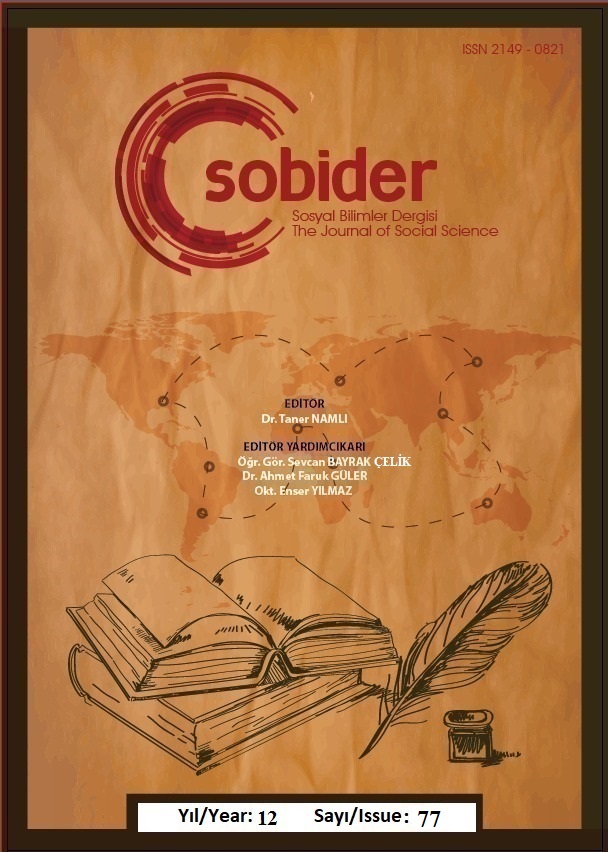Author :
Abstract
Bu araştırma, genç kuşakların müzik tercihleri üzerinden müzikal kimliklerini nasıl oluşturduklarını ve bu kimliğin toplumsal aidiyetle nasıl ilişkilendiğini incelemeyi amaçlamaktadır. Müzik, bireylerin kendilerini ifade etme biçimleri arasında önemli bir yer tutmakta; aynı zamanda sosyal ilişkileri şekillendiren ve toplumsal bağları güçlendiren bir araç olarak da işlev görmektedir. Bu bağlamda, çalışmada genç bireylerin müzikle kurdukları kişisel ve kolektif ilişkiler, anlam dünyaları ve sosyal kimlik inşa süreçleri ele alınmıştır. Araştırmada nitel araştırma yöntemlerinden fenomenolojik desen kullanılmış; gençlerin müzikle olan özgün deneyimlerini derinlemesine anlamaya yönelik bir yaklaşım benimsenmiştir. Veriler, yarı yapılandırılmış görüşme teknikleriyle toplanmış ve içerik analizi yöntemiyle çözümlenmiştir. Katılımcıların müzikle ilgili anlatıları, yalnızca bireysel zevklere değil; aynı zamanda sosyal gruplarla kurulan bağlara, kimliklenme süreçlerine ve aidiyet hissine dair önemli ipuçları sunmuştur. Bulgular, müziğin gençler açısından yalnızca bir estetik tercih değil; aynı zamanda sosyal kimlik oluşturma ve kolektif aidiyet üretme sürecinin aktif bir parçası olduğunu göstermiştir. Sonuç olarak, müzikal kimlik ile toplumsal aidiyet arasında çok katmanlı ve dinamik bir ilişkinin varlığı katılımcı anlatımları üzerinden ortaya konmuştur. Bu çalışma, gençliğin kültürel pratiklerini anlamada müziğin dönüştürücü gücüne dikkat çekmektedir.
Keywords
Abstract
This study aims to examine how young generations form their musical identities through their music preferences and how these identities relate to social belonging. Music plays an important role in how individuals express themselves; it also serves as a tool that shapes social relationships and strengthens social bonds. In this context, the study examines the personal and collective relationships young individuals establish with music, their worlds of meaning, and their social identity construction processes. Qualitative research methods were employed, specifically a phenomenological design, to gain a deeper understanding of young people's unique experiences with music. Data were collected using semi-structured interview techniques and analyzed using content analysis. The participants' narratives about music provided important clues not only about individual tastes but also about the bonds they form with social groups, their identity formation processes, and their sense of belonging. The findings showed that music is not merely an aesthetic preference for young people but also an active part of the process of forming social identity and producing collective belonging. The participants' narratives reveal a multi-layered and dynamic relationship between musical identity and social belonging. This study underscores the transformative power of music in comprehending the cultural practices of youth.





